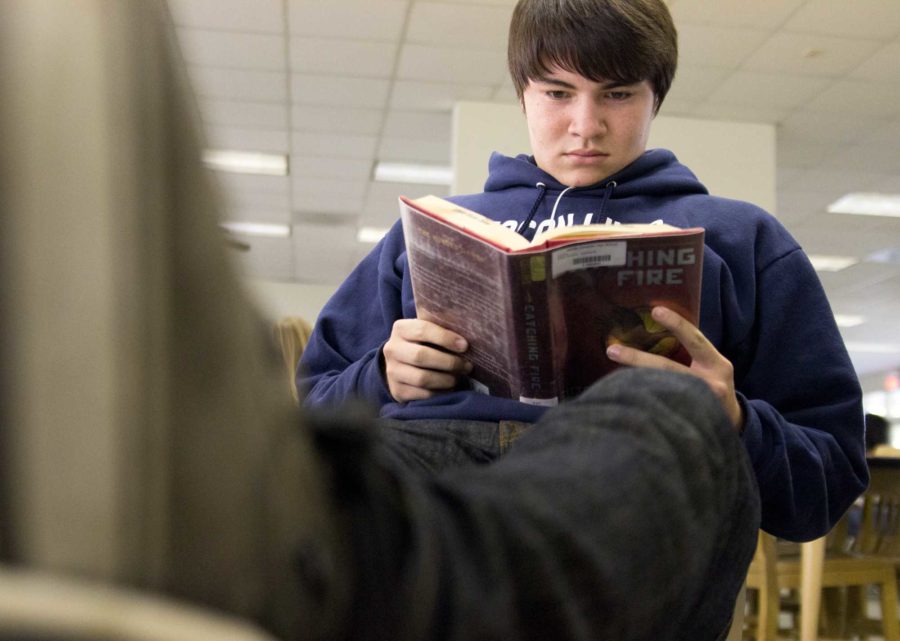Ditching at the Strike of Midnight
Efforts by marketing geniuses behind the entertainment and electronic industries, in recent years, have vamped up the popularity of attending midnight releases, at all costs. Social networking has also encouraged users to become “first” to receive the new gadget of the month or watch the hottest blockbuster, even if that student must cut school.
Demographics for students who could potentially ditch school for midnight releases spreads equally across all grades because of today”s entertainment ability to captivate a wide range of audiences. When media is targeted towards a particular demographic, the amount of students who would reportedly ditch doesn’t make a dent in the Average Daily Attendance (ADA) compared to normal school days.
According to Mrs. Arianna Pike, the attendance clerk at Cam High, it is hard to tie a student’s absence due to a midnight release the night before. Additionally, when a midnight release passes, “I never really noticed an impact,” on ADA, said Pike.
Traditionally, the only recognized “ditch day” in any institution is the day before Prom for high school seniors. Otherwise, teachers usually have little to no sympathy for students who cut school in order to visit midnight releases and choose to ditch school the next day. “Students need to get their priorities straight,” said English teacher Mrs. April D’Andrea. “It’s your responsibility to go to school as your job and you must show up.”
Some teachers have examined which high school grade levels often partake in midnight ditching. Science teacher Mr. Jonathan McCabe said, “I don’t see it as much in freshmen and sophomore classes.” Tendencies to attend midnight launches remains primarily within upperclassmen.
High school stereotypes often categorize upperclassmen with a greater level of responsibility and maturity than the average freshman or sophomore. For junior or senior classes, “I would definitely give a quiz that day. Why should they be any more entitled to participate in a midnight release that day when teachers can’t,” said McCabe.
In a survey done by The Stinger, all participants carried close views towards ditching. Of the results, all students supported “ditching responsibly,” a term coined by Courtney Norris.
“If they ditch with outstanding grades, then it’s okay. Personally, I could buy (video games) later for cheaper,” said, junior, Grant Arikawa. The remainder of the students who took the survey also permitted ditching as long the student taking the leave of absence had good grades.
On the opposite side of the argument, students with less than stellar grades, “should just wait a day,” said senior Josh Tinoco.
Due to the relative time of a midnight release, customers have dozed off at a launch or during a midnight screening before. “I asked my mom and saw Transformers 3. I ended up falling asleep during the movie and was really tired after,” said junior Devin Madison. Incidents like this pose the question, are midnight releases worth the sacrifice?
Entertainment, interactions, and foods drive consumers to want and buy. Some take it to the extreme and will press on, even at the cost of sleep deprivation.
When equated into terms of schooling, students who choose to attend midnight releases risk two serious problems. Students like Sam Menne, junior, who went to Rolling Pin Donuts to buy maple dogs are forced to press on the next day while sleeping through their classes. While the student attends school, the student is also expected to perform daily tasks and assignments like any other day, degrading and eroding the quality of work they complete.
The second of the two problems is that students sometimes feel the implication take the next day off to make up for a loss of sleep. While this approach is better for the physical well-being, the student must now fit a day of academics into their future schedule.
“There is ditching and ditching responsibly,” said Norris. “Responsibly is when you don’t do it all the time and when you do, it is on a day where you can make up your assignments easily.”

















































































![Senior Ditch Day... Relaxation or Truancy? [Video]](https://achsstinger.com/wp-content/uploads/2017/10/IMG_7119-900x599.jpg)
![Heavy Rain Hits Cam High [video]](https://achsstinger.com/wp-content/uploads/2017/02/maxresdefault-900x506.jpg)



